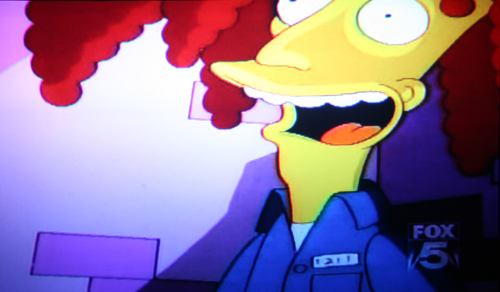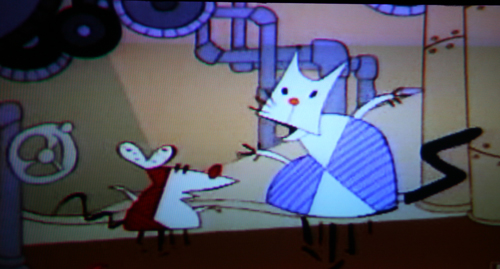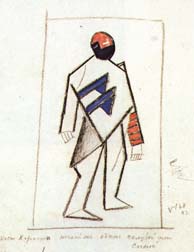I am currently reading Douglas Coupland’s latest book, “Jpod” and absolutely loving it. My favorite quote so far:
“Here’s my theory about meetings and life: the three things you can’t fake are erections, competence and creativity. That’s why meetings become toxic–they put uncreative people in a situation in which they have to be something they can never be. And the more effort they put into concealing their inabilities, the more toxic the meeting becomes. One of the most common creativity-faking tactics is when somebody put their hands in the prayer position and conceals their mouth while they nod at you and say, “Hmmmmm. Interesting.” If pressed, they’ll add, “I’ll have to get back to you on that.” Then they don’t say anything else”.
By the way, according to his website, on 14th of June 2006 at 7 pm, Coupland is going to be at Barnes & Noble Union Square, apparently promoting “Jpod.”
One of the running themes in the book is the never ending references to the Simpsons cartoons. By my estimation, probably good third of my posts have an Simpsons quote. And you know what, I feel rather pathetic while watching old episodes I stumble upon obscure references that are not even documented in very, very obsessive snpp.com.
Here are two latest ones that I found. I’ll let you guess, and then announce the right answer. My hope is that some of you are at least as nerdy as I am for knowing this.
What is the significance of Bob Terwilliger’s prisoner number, 1211 in episode [9F22] Cape Feare? (this one’s is too easy for some of my friends :)
Answer: Newscorp headquarters are located at 1211 Avenue of the Americas

In episode 9F19 Krusty Gets Kancelled what is “Eastern Europe’s favorite cat-and-mouse team” based on?

Answer: They are based on Kazimir Malevich-designed costumes for a futurist opera “Victory Over the Sun”. This 1913 opera was written in Zaum, an artificial avant-garde language, similar to glossolalia or “speaking in tongues”. And I thought that Malevich only drew black squares…
